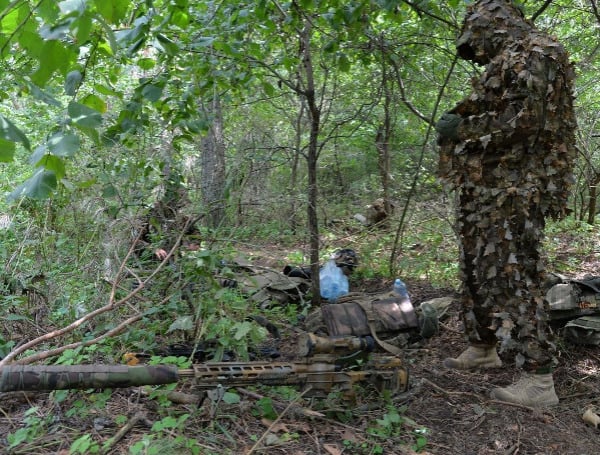
Russian forces sustained their highest single-day casualty count since the start of the full-scale invasion of Ukraine, with 2,200 soldiers reportedly killed on December 20, according to Ukrainian authorities.
The Ukrainian Defense Ministry announced the staggering toll on Friday, emphasizing its commitment to making Russian forces “pay the highest price for their terror.” The milestone follows similar high-casualty days on November 11 and November 29, when Russia lost 2,030 soldiers each day.
READ: Russian Missile Strike Damages Embassies In Kyiv Amid Heightened Drone And Ballistic Warfare
Moscow’s heavy losses come amid reports of dwindling manpower, particularly as Russian forces continue to employ high-casualty “meat-grinder” assaults in eastern Ukraine. These tactics have been used to pressure Ukrainian defensive positions but have led to significant Russian personnel losses.
In total, Ukrainian officials estimate that 772,620 Russian personnel have been killed since the conflict began on February 24, 2022. However, these figures are difficult to independently verify, as neither Russia nor Ukraine regularly disclose casualty numbers for their own forces.
The prolonged conflict has strained both sides, with significant challenges in replenishing personnel and resources.
READ: White House, Pentagon Discrepancy Over U.S. Troop Numbers In Syria Sparks Confusion
Adding to the complexity, Russia has sought reinforcements from abroad. According to reports from South Korea’s spy agency, North Korea has dispatched over 12,000 soldiers to assist Russian forces in Kursk. At least 100 of these troops have been killed, and another 1,000 injured, since their deployment. Experts have labeled these soldiers as “Putin’s cannon fodder.”
Ukraine continues to endure the strain of the nearly three-year conflict, grappling with relentless Russian advances, damage to its energy grid, and pressures on its military infrastructure.
European Union leaders, during a summit in Brussels on Thursday, reaffirmed their solidarity with Ukraine. EU officials emphasized that any future decisions regarding Ukraine’s status must involve Ukrainian leadership directly. Rumors of peace talks scheduled for early 2025 have fueled speculation about potential European peacekeeper deployments, although EU leaders remain tight-lipped about specifics.
READ: Putin Praises Unprecedented Russia-China Ties, Highlights Strengthened Strategic Partnership
The election of Donald Trump as U.S. President has raised questions about the future of Western support for Ukraine. Trump’s statements favoring reduced U.S. involvement in foreign conflicts have sparked concerns about the trajectory of aid and military backing for Kyiv.
Despite these uncertainties, Ukrainian forces continue to defend against Russian aggression, while Moscow grapples with mounting personnel losses and international isolation. As the war enters its next phase, both nations face critical challenges in sustaining their campaigns and negotiating future outcomes.
Please make a small donation to the Tampa Free Press to help sustain independent journalism. Your contribution enables us to continue delivering high-quality, local, and national news coverage.
Connect with us: Follow the Tampa Free Press on Facebook and Twitter for breaking news and updates.
Sign up: Subscribe to our free newsletter for a curated selection of top stories delivered straight to your inbox.
